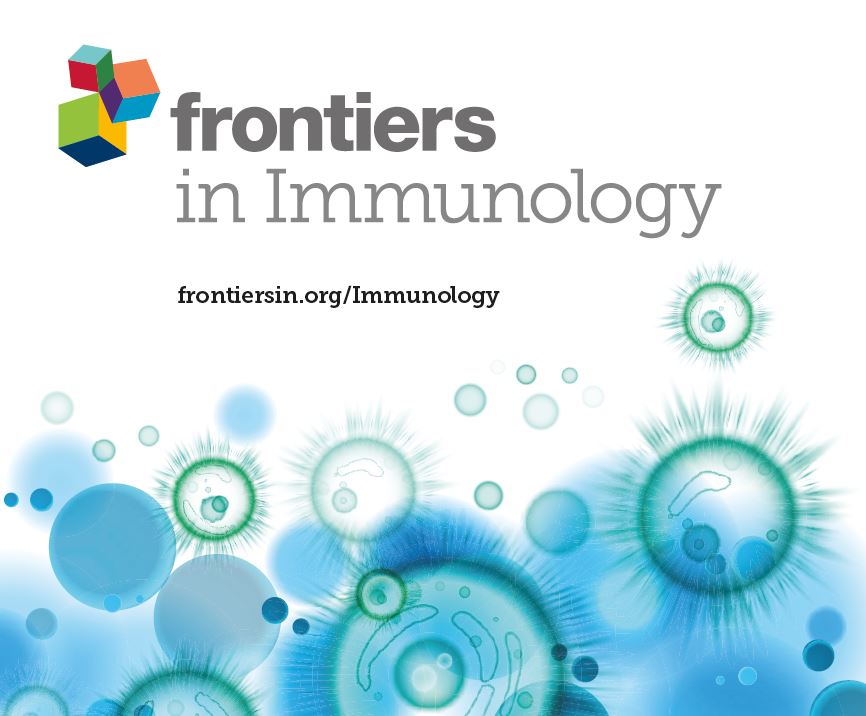Causal effects and metabolites mediators between immune cell and risk of colorectal cancer: a Mendelian randomization study
IF 5.7
2区 医学
Q1 IMMUNOLOGY
引用次数: 0
Abstract
ObjectiveThe involvement of immune cells in colorectal cancer (CRC) and their interplay with metabolic disorders are yet to be fully elucidated. This study examines how peripheral immune cells, inferred genetically, affect CRC and investigates the intermediary roles of metabolites.MethodsWe employed a two-sample bidirectional Mendelian randomization (MR) approach to assess the causal influence of immune cells on CRC. Additionally, a two-step MR strategy was utilized to pinpoint potential metabolites that mediate this effect. Our analysis incorporated data from genome-wide association studies (GWAS), involving 731 immune cell types, 1,400 metabolites, and CRC outcomes. The primary method of analysis was randomized inverse variance weighting (IVW), supported by MR-Egger, weighted median, simple mode, and weighted mode analyses. Sensitivity checks were conducted using Cochran’s Q test, MR-PRESSO test, MR-Egger regression intercept, and leave-one-out analysis.ResultsThe study identified 23 immune cell types and 17 metabolites that are causally linked to CRC. Our mediation analysis highlighted that nine metabolites act as intermediaries in the relationship between nine specific immune cells and CRC risk. Notably, The ratios of Adenosine 5’-monophosphate (AMP) to aspartate and Retinol (Vitamin A) to linoleoyl-arachidonoyl-glycerol (18:2 to 20:4) were found to concurrently mediate the promoting effects of Myeloid DC %DC and BAFF-R on B cells in colorectal cancer (CRC). Moreover, iminodiacetate (IDA) was found to mediate the protective effect of CD14免疫细胞与结直肠癌风险之间的因果效应和代谢介质:孟德尔随机研究
目的免疫细胞参与结直肠癌(CRC)及其与代谢紊乱的相互作用尚未完全阐明。本研究探讨了通过基因推断的外周免疫细胞是如何影响 CRC 的,并研究了代谢物的中介作用。此外,我们还采用了两步MR策略来确定介导这种影响的潜在代谢物。我们的分析纳入了全基因组关联研究(GWAS)的数据,涉及 731 种免疫细胞类型、1,400 种代谢物和 CRC 结果。主要分析方法是随机逆方差加权(IVW),并辅以MR-Egger、加权中位数、简单模式和加权模式分析。使用科克兰Q检验、MR-PRESSO检验、MR-Egger回归截距和leave-one-out分析进行了敏感性检查。我们的中介分析显示,在九种特定免疫细胞与 CRC 风险的关系中,有九种代谢物起着中介作用。值得注意的是,我们发现腺苷-5'-单磷酸(AMP)与天门冬氨酸的比率以及视黄醇(维生素 A)与亚油酸-油菜籽酰-甘油的比率(18:2 至 20:4)同时介导了髓样 DC %DC 和 BAFF-R 对 B 细胞对结直肠癌(CRC)的促进作用。此外,还发现亚氨基二乙酸盐(IDA)可介导 CD14+ CD16- 单核细胞对 CRC 的保护作用,其介导作用占 11.8%。与此相反,IDA 还降低了 IgD+ CD38br %B 细胞对 CRC 风险的保护作用,其中介效应比例为-10.4%。已确定的因果联系和中介途径强调了潜在的治疗目标,为旨在调节免疫反应以控制 CRC 的干预措施奠定了基础。
本文章由计算机程序翻译,如有差异,请以英文原文为准。
求助全文
约1分钟内获得全文
求助全文
来源期刊

Frontiers in Immunology
IMMUNOLOGY-
CiteScore
9.80
自引率
11.00%
发文量
7153
审稿时长
14 weeks
期刊介绍:
Frontiers in Immunology is a leading journal in its field, publishing rigorously peer-reviewed research across basic, translational and clinical immunology. This multidisciplinary open-access journal is at the forefront of disseminating and communicating scientific knowledge and impactful discoveries to researchers, academics, clinicians and the public worldwide.
Frontiers in Immunology is the official Journal of the International Union of Immunological Societies (IUIS). Encompassing the entire field of Immunology, this journal welcomes papers that investigate basic mechanisms of immune system development and function, with a particular emphasis given to the description of the clinical and immunological phenotype of human immune disorders, and on the definition of their molecular basis.
 求助内容:
求助内容: 应助结果提醒方式:
应助结果提醒方式:


